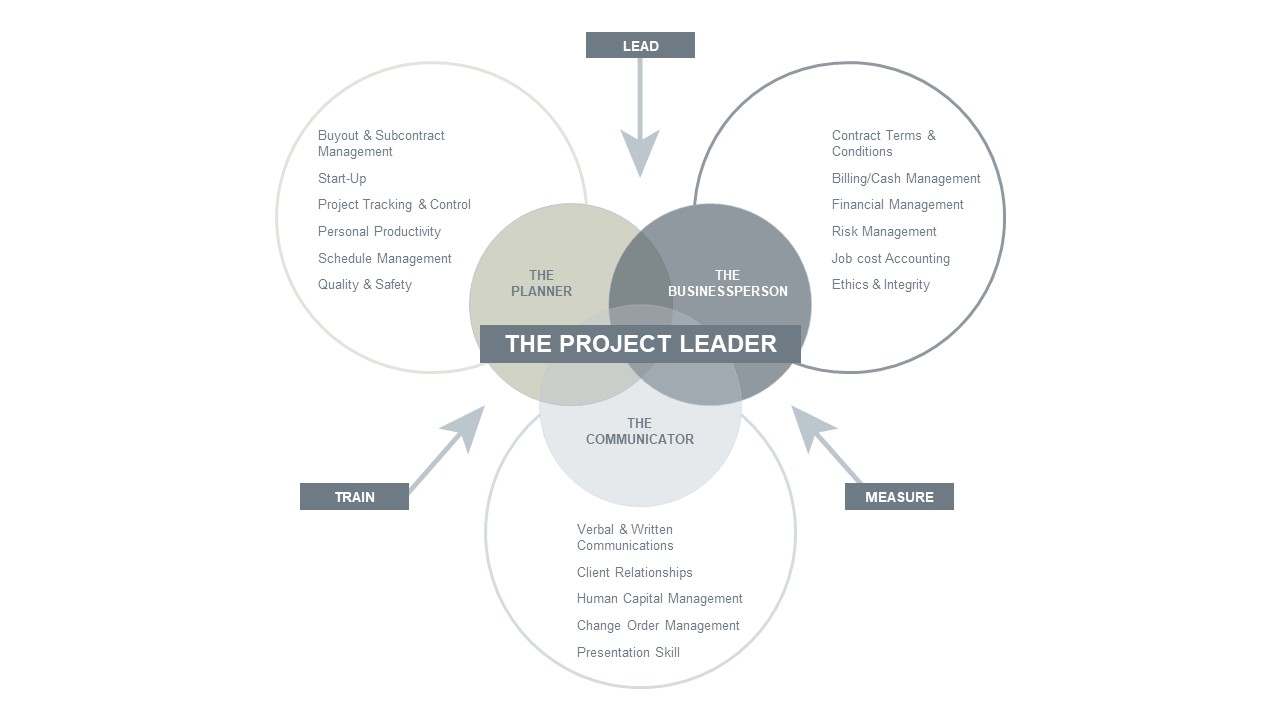Creating Project Managers Who Can Lead Your Business

Project managers remain essential to the success of your engineering and construction firm, sitting between the field leaders and owners. The juggling act they’re asked to manage can be astounding, making sure field staff has the necessary people, materials and information to complete a job while managing changes, billing and other planning tasks at various stages of the project.
The basic techniques for managing projects — scheduling, budgeting and cost tracking — are well known and easily mastered. It’s harder for some to grasp the day-to-day challenges of working in the field. But to become one of the best, your project staff must learn to think and act like business owners, where their own money and success are at stake.
Understanding the underlying fundamentals of how jobs are planned, executed and what drives profit margins will help your teams maximize outcomes. But it’s more than just financial. Your project managers interact with customers daily, so clear communication and customer service are also needed.
Your construction project managers should learn to:
- Develop profitable customer relationships.
- Create powerful, integrated project teams.
- Understand financial control of projects.
- Plan projects for profits and customer satisfaction.
When it comes to training, most companies focus on skills such as technical knowledge, planning and communication. While those are also critical for job success, construction firms that are best in class go beyond the basics to help project management teams understand the full implications of their work.
For example, project managers execute change orders, which can be either a drain or boost to margins. Understanding how to clearly communicate costs and their impact on the timeline and labor expenses to owners can help everyone emerge satisfied with the process and protect the profitability of your projects. It is also critical to grapse cashflows and how billing in a timely manner generates project and company success.
But it’s simply not enough to understand the finances of each project. Your project managers need to communicate clearly and in a timely manner with field staff, involving them in critical decisions and seeking input. Integrating teams across the organization helps keep everyone on the same page, looking for ways to save time, costs and materials, while delivering the highest quality work in a safe and efficient environment.
Developing relationships with field supervisors, superintendents and others putting work in place helps project managers understand and mitigate challenges from the beginning of projects. Planning for real-world conditions and setting those expectations also helps drive better client service.
Project managers sit at the nexus of your construction company. Be sure they have the training and skills necessary to drive the best possible outcomes for all your projects.




